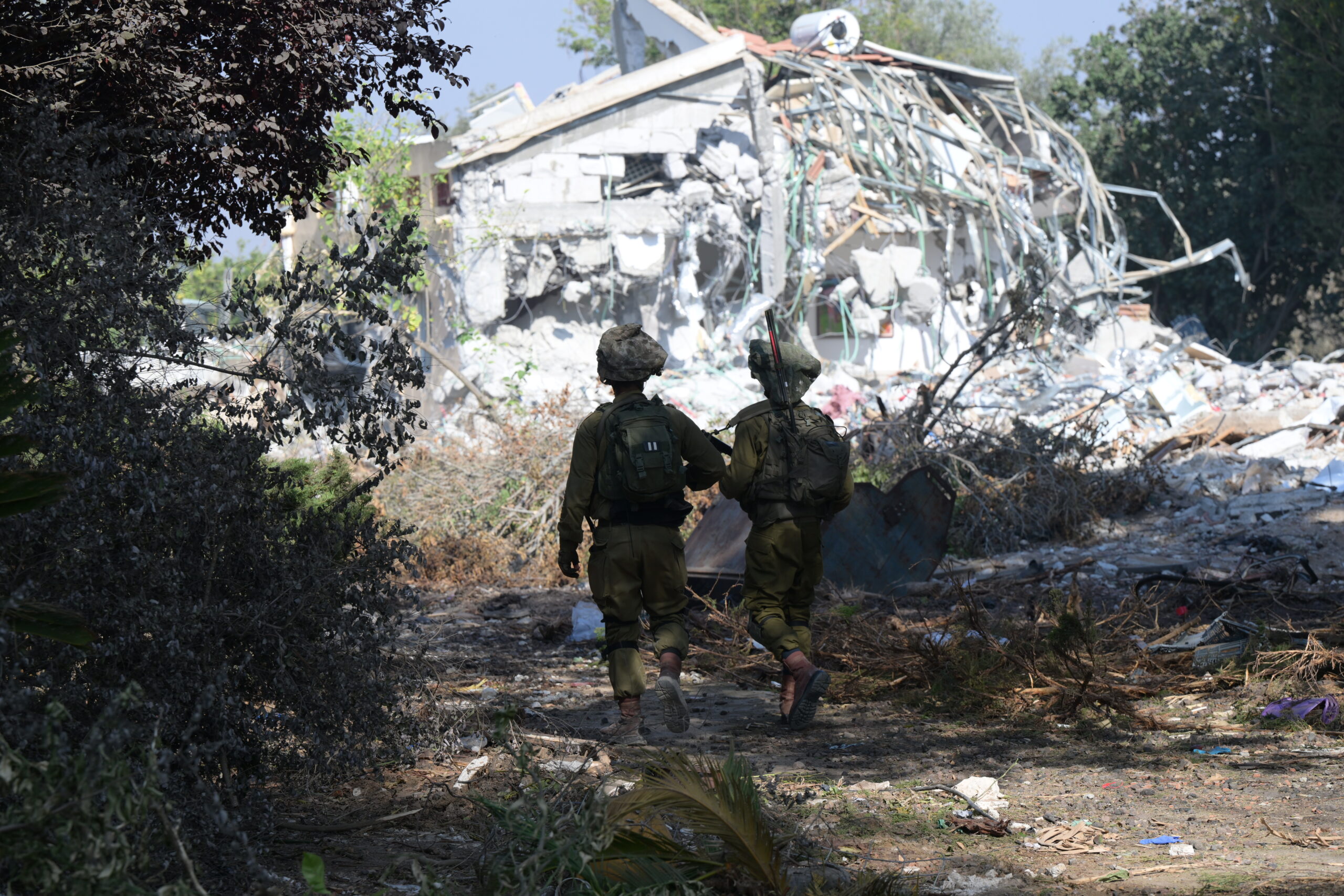IDF Details October 7 Failures at Kibbutz Be’eri

The Israel Defense Forces “failed in its mission to protect the residents of Kibbutz Be’eri,” with those failures ranging from planning and communication to command and control, when Hamas overwhelmed the Negev kibbutz on Oct. 7, 2023.
That is the conclusion of an IDF inquiry into the battle for Be’eri, the hardest-hit of all the Gaza Envelope communities swarmed by thousands of Hamas terrorists and other infiltrators on the morning of Simchat Torah. With about 1,000 residents, the kibbutz had 101 civilians and 31 security personnel killed Oct. 7 and 8, and 32 people were abducted. Eleven of them remain held in Gaza.
About 340 terrorists invaded Be’eri, and 100 were killed, the IDF says.
“The bravery of the Be’eri residents and the members of the kibbutz’s civilian rapid response team is commendable and was crucial in stabilizing the defensive line during the first hours of combat, preventing the attack from spreading,” the report says.
Because of the delayed, confused IDF response, Kibbutz Be’eri’s defenders were outnumbered more than 10-to-1 throughout the morning of Oct. 7.
Released July 11, the IDF report is the first of an extensive series the military is conducting into the many battles fought to repel the Hamas invasion from Oct. 7 to 10, in which 1,200 Israelis and others were killed and 251 were abducted. The purpose is “to learn and draw lessons from past mistakes in order to improve effectiveness in current warfare, to prepare for the next stage of the war, to strengthen the effort to return civilians back to their homes and protect them, as well as to build the IDF’s competence in the face of security challenges.”
The IDF inquiries are limited to operational decisions and actions related to the battle, not about strategic assessments of Hamas or governmental policies. The IDF is conducting a broader review of all military issues, and an expansive postwar investigation is expected under Israel’s commissions of inquiry law.
A retired major general who once led the Gaza Division, Mickey Edelstein, led the investigation. None of the investigators was involved in the fighting Oct. 7.
Among the key findings:
• The IDF had trained to respond to a terrorist infiltration at one site but not for an attack on multiple locations. The IDF didn’t know how to respond and didn’t have the troops available to help Be’eri, which defended itself for the first seven hours.
• The IDF didn’t do enough to warn the security personnel at Be’eri as the attack began, then failed to understand and assess reports coming from the kibbutz.
• Despite “acts of heroism and supreme courage,” the troops who responded to Be’eri lacked coordination and organization. Some troops waited outside the kibbutz for an order to attack or in expectation of an evacuation operation. Others fought inside but withdrew. Still others set up a security perimeter rather than attack. The turning point was when Brig. Gen. Barak Hiram was assigned operational control of the sector that included Be’eri.
• The failure to save 13 of 15 hostages held at the home of Pessi Cohen during a military standoff reflected the difficult circumstances in the middle of a battle, and the terrorists likely killed most of the hostages. But tank fire killed one hostage, and others may have died in the gunfire when security forces charged into the house after almost five hours.
• Some soldiers “acted inappropriately” toward civilians, and troops at times put their own defense and the evacuation of their own wounded above the mission to protect and save civilians. IDF Chief of Staff Lt. Herzi Halevi responded by emphasizing the imperative “to reinforce the directive to prioritize civilian protection as the highest-priority mission.”
The IDF has not announced a schedule for the release of similar reports from other Oct. 7 battle sites. The Be’eri inquiry involved hundreds of hours of interviews, reviews of Hamas and Israeli videos and radio communications, observation records, reconstructions, and other data.
— Michael Jacobs, July 12, 2024